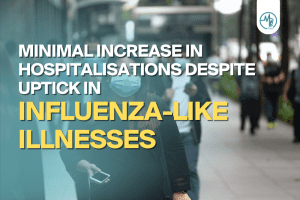Why Finishing Your Antibiotics Could Save Lives
Imagine a world where common infections are once again deadly. This could be our future if antibiotic resistance continues to rise. Completing your antibiotic course is a simple yet powerful action against this global threat.
The Importance of Completing Your Antibiotic Course
Finishing prescribed antibiotic courses is essential in controlling the spread of antibiotic-resistant bacteria. This action minimises the risk of partially treated bacteria mutating to resist antibiotics, a concern supported by a broad scientific consensus. For example, one study showed that 92% of medical students who were prescribed antibiotics took them as directed. This highlights the awareness of completing treatments among future healthcare providers.
Recent discussions in the medical community highlight the complex nature of antibiotic resistance and appropriate antibiotic duration. Evidence suggests that shorter, more precise antibiotic use, aligned with a proper diagnosis and sensitivity to the bacteria causing the infection, might be as effective as longer courses in preventing resistance.
Antibiotic resistance poses a substantial threat to global health by making previously manageable infections more difficult and expensive to treat. Ensuring antibiotics are used appropriately is a cornerstone in the fight against this challenge. There’s also a notable gap in education among medical students about the optimal use of antibiotics and the mechanisms of resistance. Enhancing this aspect of medical education could be pivotal in equipping future healthcare professionals with the skills to effectively manage antibiotic use and resistance.
The Financial and Clinical Impact of Antibiotic Resistance
Antibiotic resistance significantly increases healthcare costs and worsens clinical outcomes. Studies consistently demonstrate that patients with antibiotic-resistant infections require longer hospital stays, more complex and expensive treatments, and face higher risks of adverse outcomes compared to patients with non-resistant infections.
For instance, research has shown that the direct medical costs for treating antibiotic-resistant infections are substantially higher due to the need for more intensive care and additional diagnostic tests. This economic strain extends beyond individual cases, impacting the healthcare system at large. A systematic review highlighted that antibiotic resistance could cost the global economy up to $100 trillion by 2050 if current trends continue.
Moreover, the burden of antibiotic resistance is not distributed evenly across the globe. Low- and middle-income countries face disproportionately higher challenges due to less stringent antibiotic use regulations and varying access to effective antimicrobial therapies.
Understanding Strategies to Fight Antibiotic Resistance
Antibiotic resistance is a problem that affects all of us, not just those in the medical field. Here’s how everyone can contribute to solving this issue:
Be Antibiotic Smart: It’s crucial to use antibiotics only when prescribed by a healthcare professional. Don’t pressure your doctor for antibiotics if they say you don’t need them, and never use leftover antibiotics or take those prescribed for someone else.
Follow Prescriptions Carefully: If you are prescribed antibiotics, take them exactly as directed. This means completing the course, not stopping early even if you feel better. Stopping too soon can allow bacteria to survive and become resistant.
Stay Informed: Keep up with information on how to prevent infections, such as by washing hands regularly, preparing food safely, avoiding close contact with sick people, and keeping vaccinations up to date. Reducing the spread of infections decreases the need for antibiotics, which in turn reduces the chance for resistance to develop.
Support Clean Environments: Advocating for clean water, adequate sanitation, and precise infection control in healthcare settings can help stop the spread of resistant bacteria.
Encourage Investment in New Solutions: Support policies and initiatives that promote research into new antibiotics, vaccines, and diagnostics. We need new treatments to keep pace with resistant bacteria.
The Collective Effort Against Antibiotic Resistance
Antibiotic resistance is not just a medical issue but a societal challenge that demands a collective response. Here’s how understanding and action from everyone can make a significant difference:
- Personal Responsibility: As individuals, adhering to prescribed antibiotic courses and embracing preventive measures like hand hygiene can combat the spread of resistant bacteria.
- Community Awareness: Community education programs can disseminate vital information about the correct use of antibiotics to broader audiences, thereby reducing misuse and overuse.
- Policy and Innovation: Supporting health policies that foster research into new antibiotics and treatments can help keep ahead of resistant bacteria. Public backing for such initiatives is crucial for securing funding and prioritising research.
- Global Collaboration: Since bacteria know no borders, international cooperation is essential. Supporting global health initiatives and adhering to international guidelines can help manage and mitigate antibiotic resistance worldwide.
Every action counts in the fight against antibiotic resistance. By taking informed steps and supporting policies aimed at curbing this issue, everyone can contribute to preserving the efficacy of these vital medicines for future generations.
References
- Wiese-Posselt, M., Lâm, T. T., Schröder, C., Schneider, S., Kurzai, O., Feufel, M. A., & Gastmeier, P. (2023, May 17). Appropriate antibiotic use and antimicrobial resistance: knowledge, attitudes and behaviour of medical students and their needs and preferences for learning. Antimicrobial Resistance & Infection Control, 12(1). https://doi.org/10.1186/s13756-023-01251-x
- Richardson, L. A. (2017, August 23). Understanding and overcoming antibiotic resistance. PLOS Biology, 15(8), e2003775. https://doi.org/10.1371/journal.pbio.2003775
- Jit, M., Ng, D. H. L., Luangasanatip, N., Sandmann, F., Atkins, K. E., Robotham, J. V., & Pouwels, K. B. (2020, March 6). Quantifying the economic cost of antibiotic resistance and the impact of related interventions: rapid methodological review, conceptual framework and recommendations for future studies. BMC Medicine, 18(1). https://doi.org/10.1186/s12916-020-1507-2
- Poudel, A. N., Zhu, S., Cooper, N., Little, P., Tarrant, C., Hickman, M., & Yao, G. (2023, May 8). The economic burden of antibiotic resistance: A systematic review and meta-analysis. PLOS ONE, 18(5), e0285170. https://doi.org/10.1371/journal.pone.0285170














